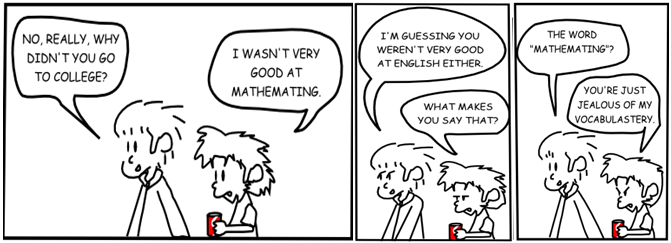Importance of English Vocabulary
You walk into an interview for your dream job. You sit down, take off your jacket and look around. As the interviewer begins to question you, you start sweating… only understanding 50% of what he’s saying, you ask him to repeat his question. And just like that, the interview is blown, thanks to tough vocabulary that was totally out of your league.
Unfortunately, this scenario is not so uncommon. In fact, it occurs more than you would think. This is because, in order to understand and to be understood, you need to learn English vocabulary. The importance of English vocabulary is something which many schools don’t focus on, and students don’t realize that when something as important as vocabulary is neglected, their future is on the line. Wake up everyone! Spell check can’t help you forever!
Vocabulary is expressive, vital, comforting, motivating, creative, active, competitive, relative, liberating, informative, empowering, and most importantly, everything. Vocabulary is everything. Vocabulary is the key to what was, what is, and what will be. How can you get by in life without it?
Studies have shown that when a child enters school for the first time, around the age of 5, he tends to know at most several thousand words. How many words can a child add to his vocabulary during a year? Professional educators estimate a few hundred to a few thousand per year! This continues from 1st grade through 12th grade.
I remember learning a lot of difficult vocabulary words during my elementary and high school years. I loved that every year that passed, the workbook that we learned from had the same cover, but it was always in a different color with different words on the front. I have to admit that my long-term memory is great, but when it came to learning things I didn’t care about, it went in one ear and came out the other. Every Friday I would have a spelling and vocabulary test. I wouldn’t bother studying all week because I knew if I got studying done on Monday from my English vocabulary words, I would never remember anything I reviewed by Friday morning. So knowing me, I left the studying for the night before or the morning bus ride to school.
If you asked me a week later what any of those vocabulary words meant, chances are I wouldn’t know a single one. Why? Because I didn’t care. Why did I need to know words that I was never going to use? I wish I had taken it seriously because by the time the SAT’s came along, I was seriously in trouble.
How is it that students who aren’t “academically inclined” are somehow able to memorize every single word to all of their favorite artist’s 12 new songs that just came out? EVERY. SINGLE. WORD. Funny, isn’t it? How the same student who gets a 25% on their weekly vocabulary test is able to remember every single word to countless popular songs.
I think that a big part of the reason that students don’t care about vocabulary is because they don’t realize how much they will need it in the future. Schools today are obviously not doing everything they can to stress the importance of vocabulary and what it can do for your future. If I had known has vitally it would impact my life, I would’ve taken it more seriously. For example, someone who plans on going into architecture will probably take math much more seriously than other subjects in school. Why? Because they’ll realize that in order to be an architect, math is one of the most important tools that they will need.
Studies have shown that in most schools today, the attendance for foreign language classes has declined rapidly. For a large majority of students, the ultimate goal of studying is to be able to communicate in a new language. If you do not wish to lean completely on non-verbal skills, mastering vocabulary is not just important, but crucial in a foreign language environment.
There is a myth that says, “Vocabulary is not as important in learning a foreign language as Grammar or other areas”. This is a very common misconception.
When someone travels, they usually travel with a dictionary, not a grammar book. Take it from the British linguist David A. Wilkins who says: “without grammar, very little can be conveyed; without vocabulary, nothing can be conveyed”
Vocabulary is Fundamental
So yes, vocabulary is fundamental but what about the other dimensions? Should we pay any attention to all the other aspects of language learning?
Of course we should. The good news is that improving your vocabulary has a direct, positive impact on your capacity to build up your language ability as a whole. A famous leading linguist researcher Paul Nation said: “Vocabulary is not an end in itself. A rich vocabulary makes the skills of listening, speaking, reading, and writing easier to perform.” When your working memory is not loaded with hesitation about the correct spelling, pronunciation and contextual use of the words, you can concentrate fully on higher-level language, such as using detailed sentence structures and the correct expressions for the type of conversation that is going on.
All in all, instead of constantly comparing vocabulary with the rest of the language skills, it would be more useful to consider it as solid foundation upon which to build the overall language proficiency.
I think that if schools today put their focus on the right things, the outcome of the students would be vastly different. If teachers were to emphasize how much vocabulary can contribute to their students’ future, the world would be a different place.
Looking to further improve your own vocabulary? A great place to start is by checking out grammar software




No comments yet.